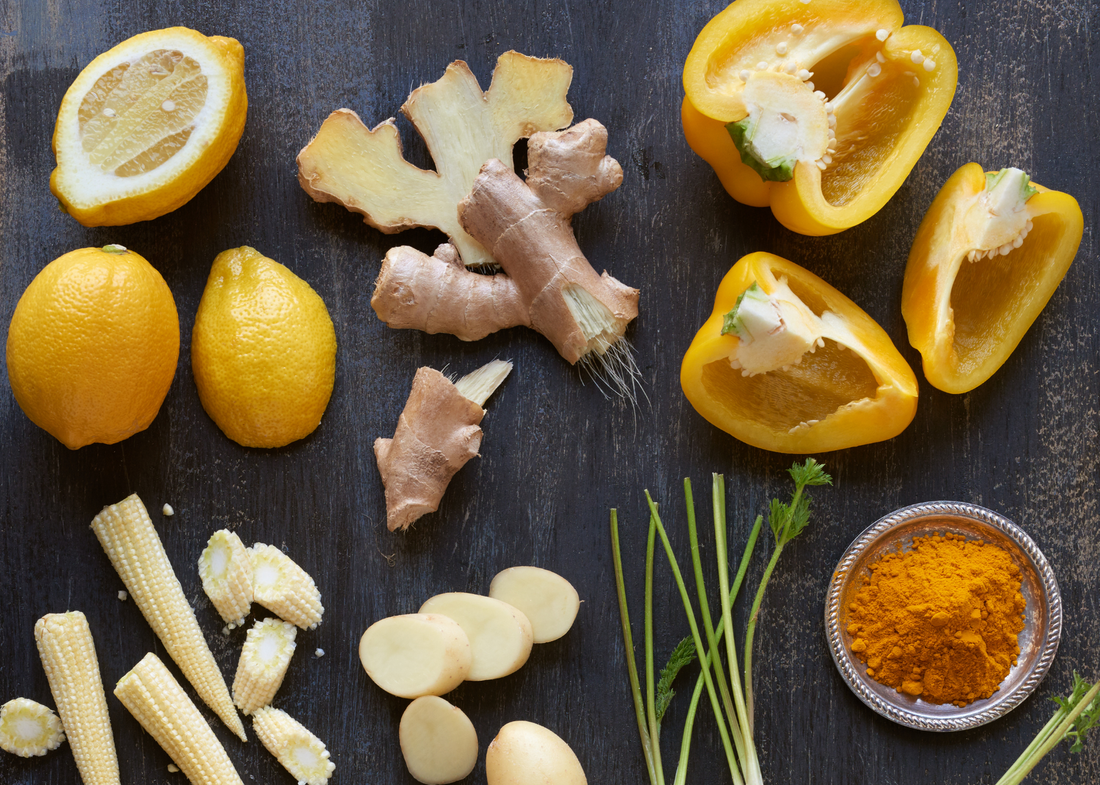|
Solutions Changes in stool frequency and consistency can have a lockdown effect on our overall health, driven by and driving and perpetuating digestive disorders in a self-feeding cycle, where poor digestive capabilities increase stress and inflammation, and inflammation and stress suppress digestive processes. If you are taking drugs that suppress stomach acid production (e.g., omeprazole and PPIs), it is very likely that your digestion is not optimal and the cause of bloating, flatulence and constipation. It may be important to address the causes of heartburn and GERD to re-establish normal stomach function and reduce the sensation of burning due to low-stomach acid (NOT excessive stomach acid production). Increase your water intake. Again, dehydration is one of the main culprits in chronic constipation. Keeping a bottle of water by your side at all time can be a great reminder to drink more. Setting regular alarms in the day, can also remind you to drink. Drink plenty of water or herbal teas in the day to stay hydrated. Ensure you consume your five-a-day, and aim to increase to ten portions of vegetables a day and a couple of fruits (no more than three). A handful of berries or a cup of vegetables qualifies as a portion. For indication, one apple makes one of your five-a-day. Two apples still make one of your 5-a-day. So a varied, balance diet with as many different colours of vegetables is highly recommended. Increase dietary fibre intake. However, it is important to consider that insoluble fibre feeds for the ‘good’ and the ‘bad’ bacteria. Yet, the good kind has a greater affinity with soluble fibre. Starting low and slow is of the utmost importance to prevent symptoms to worsen. Studies have shown that increasing fibre intake to around 29 grams per day is optimal. Intake of over 38 grams doesn’t display any benefits and may lead to diarrhoea. If your diet mainly revolves around ready-made meals, take-aways and ultra-processed manufactured food products, start by incorporating fresh fruits and vegetables in your diet. Then, aim for 50% of your plate being vegetables. Mix a variety of raw (salads, fermented foods like kimchi) and cooked (soups and broths, steamed or baked) vegetables. Antioxidant-rich they also play a key role in balancing inflammatory responses and reducing free radical damage; therefore, always aim to consume one vegetable of each colour (Orange: sweet potatoes, squash, oranges, papaya. Blue: blueberries, blackberries, blue carrots and tomatoes. Red: tomatoes, red peppers, radishes and beetroots. Green: especially vegetables from the brassicae family like broccoli, Brussels sprout, cauliflower, kale and cabbages, spring/collard greens. Yellow: yellow peppers, beans and courgettes, pineapple, mango, and pumpkin). If you are choosing to supplement with prebiotic fibre (GOS, FOS and XOS), again start low and slow, and build up to optimum dosage. The severity of symptoms appears to be dose-dependant. However, symptoms associated with increased dietary fibre intake may dissipate within a two-week period and so, daily intake is highly recommended to offer any benefit and allow for beneficial bacteria to change the gut milieu to a more acidic environment (lactobacilli and bifidobacteria produce lactic acid), which is essential to displace and keep oxygen-breathing pathogenic microbes under control. Consider the following foods, which are high in insoluble fibre: • Flax/linseeds, sunflower and chia seeds • Almonds, hazelnuts and walnuts • Oat/wheat bran and germ • Beans, lentils and legumes • Dry fruits (sulphite-free) • Apple and pears (also contain sorbitol a type of sugar that many people cannot digest, leading to bloating and gut discomfort). • Greens (spinach, lettuce, kale, mesclun, collards, arugula, watercress, etc.) • Peas, snow peas, snap peas • Green beans (also an excellent source of silica) • Bell peppers • Aubergines • Celery • Onions, shallots, leeks, scallions, garlic • Brassicae: broccoli, Brussels sprouts, cabbage, cauliflower, kale, pak choi If you suffer from any gut disorder, start with the following vegetables that are high in soluble fibre, but lower in insoluble fibre (these tend to be safer for those with gut issues): • Carrots, sweet potatoes and squashes (peeled) • Asparagus tips • Okra • Avocados • Starchy tubers (yams, sweet potatoes, potatoes) • Turnips and greens • Rutabagas (Swedish turnips) • Parsnips • Beets • Plantains Keep away from food to which you may be hypersensitive or those that are known to promote inflammation (e.g., gluten, dairy products) until you have resolved gut issues and constipation. Lastly, any food that have an effect on liver function and the production and flow of bile are also highly recommended. Remember that bile acts as a mild laxative and is also essential for absorption of nutrients and elimination. Choleretics (substances that increase the volume of secretion of bile from the liver) and cholagogues (stimulate gallbladder contraction to promote bile flow) should, therefore, incorporated in the diet daily. Consider the following in cooking and in herbal preparations like teas or tinctures (always consult your health practitioner before supplementing with extracts): • Chamomile (Chamomilla recutita) • Elecampain (Inula helenium) • Dandelion (Taraxacum officinalis) • Fennel • Artichokes, including Jerusalem artichokes • St. John’s wort (Hypericum perforatum) • Artemisia sp • Yarrow (Achillea millefolium) • Rosemary (Rosmarinus officinalis) • Chelidonium majus (from the poppy family) • Any bitter foods (e.g., wild rocket leaves, watercress, Swedish bitters) If you suffer from gut disorders, soothing the digestive tract may be fundamental to recovery and reduce constipation. A demulcent is a herb rich in mucilage and can soothe and protect irritated or inflamed internal tissue. Include those (always consult your health practitioner before supplementing with extracts): • Marshmallow leaf or root (Althea officinalis) • Slippery Elm (Ulmus fulvus) • Liquorice (Glycyrrhiza glabra) • Flax/linseeds and chia seeds also provide soothing mucilage (mucous-like substance) Other herbs to consider include mint, ginger, turmeric and fennel seeds to further reduce inflammation, improve digestion, reduce gas and bloating. It may also be recommended to reduce caffeine and alcohol consumption to allow for the gut to heal and restore peristalsis. Avoid sugar as much as possible. Remember to eat until satiated (just before you feel full), so that you supply enough roughage to increase bulk. Reduce the load on the digestive tract by consuming pre-digested foods. For example, fermented foods like kimchi and sauerkraut, as well as broth, stews and slow-cooked preparations. You may also benefit from supplementing with digestive enzymes if you are under stress, anxious or taking certain drugs that can impede with digestion. Practice mindful eating. Mark a pause before touching your food, to break your state from hyperactivity to a more relaxed state, which is essential for digestive function. Chew each mouthful and take you time to eat. Do not mix too many food groups in one sitting and do not drink more than one glass of water with your meal. Exercise is key for movement. A sedentary lifestyle is associated with a sluggish immune system and stagnation (retention of waste) and constipation. Aim to take part in any physical activity every day — adapt your regime to your abilities. Haven’t exercised in a a while? Consider stretching and yoga to get you on the way to a more healthy lifestyle and healthier mind. Consider gentle enemas to improve regularity. Magnesium deficiency has also been linked to constipation and is also involved in the stress response and relaxation. Supplement with magnesium if necessary. References:
Source: The Gale Encyclopedia of Medicine. (2015). 5th ed. Blackbirch Press. Sharma, A. Rao, S. (2017). Constipation: Pathophysiology and current therapeutic approaches. Handbook of Experimental Pharmacology. 239: pp. 59–74. 18
0 Comments
Leave a Reply. |
Amazon Associates DisclosureNourishing Insights is a participant in the Amazon EU Associates Programme, an affiliate advertising programme designed to provide a means for sites to earn advertising fees by advertising and linking to Amazon.co.uk. Archives
December 2023
|
WHAT OUR CLIENTS ARE SAYING“I did Nutritional Therapy with Beverley and it was life changing. I highly recommend it!” Allison Blakely (Glasgow)
|
Contact Us |




